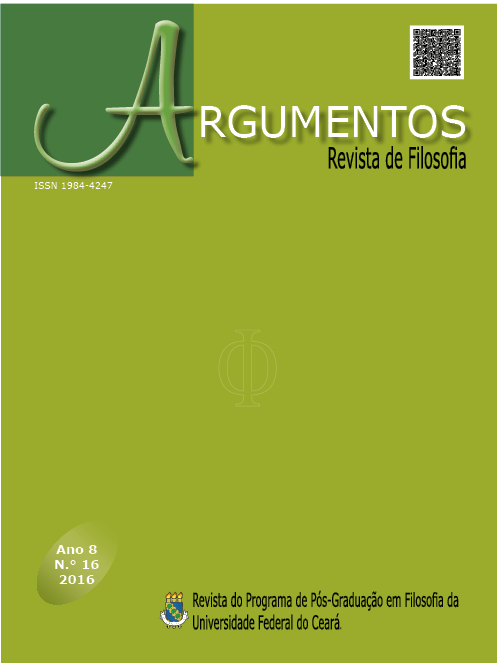From the habitus to the unity of strength in Steinian thought: an opening for understanding the virtue in mourning
Keywords:
Habitus. Unit of force. Virtue. Mourning.Abstract
The recurrence of the content of virtues in the narratives of mourners raised questions: Why and how the virtues emerge in mourning elaborations? This sparking question motivated the theoretical research by Husserl’s phenomenology that led us to the philosophical anthropology of Edith Stein. In the phenomenological description of the constitution of the human person, Stein introduced the concept of unity of force, a notion that she added to Thomistic thought and that allowed us to understand: the relationship between habitus, acts of will and virtue; the opening that the conception of habitus provides to understand the unity of the force in steinian thought; the dimension of the spirit as a source of force; the relationship between the dynamic of force with acts of will; the conception of virtue as actualization of potentiality in the spirit’s dimension. We conclude that virtue has specific connotation of habitus in its constitutive character of the person and has necessity of human action in the biopsychosocial and spiritual context to update and may prove to be a strengthening of personal expression.Downloads
Downloads
Published
How to Cite
Issue
Section
License
Argumentos magazine is licensed under an International Creative Commons Attribution License.
The Magazine uses CC BY inclusion
1) The authors retain the copyright granted to the magazine or the right to initial publication, with the work regularly licensed under the Creative Commons Attribution, which allows the sharing of the work with acknowledgment of authorship and initial publication in this magazine.
2) The authors are authorized to contract additional applicable contracts, for non-exclusive distribution of the version of the work published in this journal (for example, publication in the institutional repository or as a chapter of the book), recognition of authorship and initial publication in this journal.
3) Authors are authorized and encourage to publish and distribute their work online (for example, in institutional repositories or on their personal pages) at any time before or during the editorial process, as they can generate productive changes, as well as increase the impact and reference of published work.




.jpg)










._._3.png)
1.jpg)
._._._.png)
